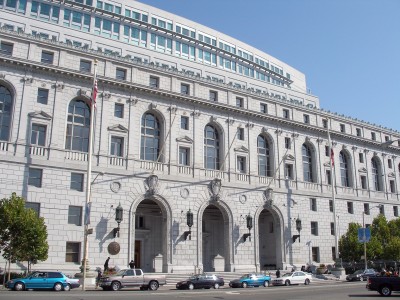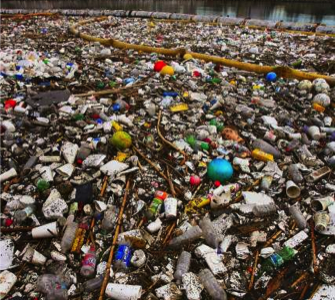General
Property, Fairness and the Public Interest (Another Glimpse of the Cathedral)
Why do we recognize some things as “property” and what does it mean to do so? A hugely influential law review article, published over forty years ago, made a valiant attempt to clarify the nature of property law. Looking back on the article and at developments since then, however, only makes it clearer that “property …
Continue reading “Property, Fairness and the Public Interest (Another Glimpse of the Cathedral)”
CONTINUE READINGClimate Engineering: National Academy Committee recommends starting research (with limits)
An NAS report on controversial engineered responses to climate change gets all the big things right, but avoids the hardest questions
Earlier this week, the National Research Council Committee on Geoengineering Climate released two reports, “Climate Intervention: Carbon Dioxide Removal and Reliable Sequestration” and “Climate Intervention: Reflecting Sunlight to Cool Earth.” Requested and funded by several US federal departments – NASA, NOAA, DOE, and the cutely labeled “U.S. Intelligence Community” – this report is the first …
CONTINUE READINGThe California Supreme Court’s Unprecedented Focus on Environmental Law
California’s Highest Court Has Far More Environmental Cases Pending Than Ever Before in Its History
The California Supreme Court, perhaps the most influential state supreme court in the nation, has of late become unusually and intensely focused on environmental law. More than ever before in its history, the California Supreme Court currently has before it a large docket of environmental cases that, individually and collectively, promise to alter the legal …
Continue reading “The California Supreme Court’s Unprecedented Focus on Environmental Law”
CONTINUE READINGCalifornia Supreme Court to Decide Whether the Mining Law Preempts State Ban on Suction Dredge Mining
Court’s Decision May Affect State’s Ability to Regulate Activities on Federal Lands
The California Supreme Court recently accepted a case that may make it more difficult for the state to protect the environment from the damaging impacts of mining. At issue is the state’s ban on suction-dredge mining in streambeds. Californians engaged in suction-dredge mining have vigorously fought against the state’s ban, and a panel of the …
CONTINUE READINGRain-Free January Portends Continued California Drought of Increased Severity
Severe Reduction in Sierra Snowpack Another Sign That State’s Worst Drought Just Gets Worse
January 2015 ends with a most dubious distinction: it’s been the driest January in recorded California history. That’s especially bad news, considering that January has traditionally been the wettest month of the year in the Golden State. According to National Weather Service and California Department of Water Resources (DWR) statistics, the alarming precipitation figures for Northern …
Continue reading “Rain-Free January Portends Continued California Drought of Increased Severity”
CONTINUE READINGCelebrating Four Decades of Energy Innovation: The California Energy Commission at 40
How California & the Commission Launched Their Acclaimed Energy Policy–& the Challenges That Lie Ahead
This month marks the 40th anniversary of California’s landmark Warren-Alquist Act, which created the state Energy Commission and triggered a transformation of energy policy in California, across the U.S., and abroad. This week an impressive group of energy policymakers, political leaders, energy scholars and Energy Commission alumni gathered at events in Sacramento and at the U.C. Davis …
CONTINUE READINGCalifornia’s Water Law Symposium–A Law Student Success Story
Students From Six Northern California Law Schools Collaborate in a Big and Unconventional Way
The 11th Annual Water Law Symposium was held last weekend at Golden Gate University Law School in San Francisco. The event drew a standing-room-only crowd of water law scholars, practitioners and policymakers, who devoted the day to a thoughtful and lively examination of how California’s constitutional law doctrine of reasonable use affects all facets of …
Continue reading “California’s Water Law Symposium–A Law Student Success Story”
CONTINUE READINGFood Policy: A Reply to Dan Farber
Earlier this week on this blog, Dan Farber made the excellent point that although the average American is neither malnourished nor obese, both persist as significant problems revealing deep failures in our food system. But his juxtaposition of statistics regarding obesity with those regarding malnourishment reflects a common misunderstanding of malnourishment, which is often equated with …
Continue reading “Food Policy: A Reply to Dan Farber”
CONTINUE READINGRenowned Scholar Jim Salzman to Join UCLA Law, UCSB Bren School Faculties
I am thrilled to share the news that Jim Salzman is moving west to join the faculties of the Bren School at UC Santa Barbara and UCLA School of Law. Jim is currently the Samuel Mordecai Professor at Duke Law School and Nicholas Institute Professor at Duke’s School of the Environment but is moving this summer to become …
Continue reading “Renowned Scholar Jim Salzman to Join UCLA Law, UCSB Bren School Faculties”
CONTINUE READINGZero Trash
Using the Clean Water Act to Control Marine Debris in California
This post is cross-posted on EcoPerspectives, the environmental law and policy blog of the Vermont Journal of Environmental Law. Let’s talk trash. Human-generated stuff that ends up in the ocean, termed “marine debris” or “marine trash,” presents a critical ocean and coastal management challenge. Trash can be found on coastlines and in seawater worldwide, from …
CONTINUE READING







